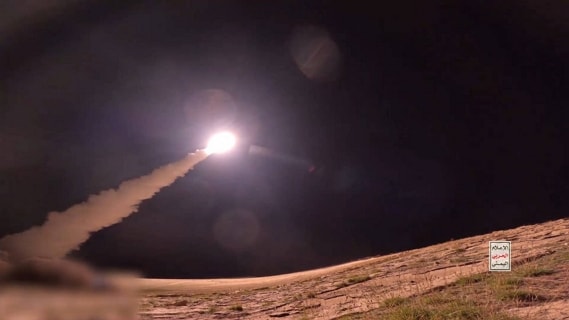The following report is now a complimentary offering from MEMRI's Jihad and Terrorism Threat Monitor (JTTM). For JTTM subscription information, click here.
The latest issue of "Voice of Khurasan," an English-language monthly magazine published by Al-Azaim Foundation, the media arm of Islamic State's Khurasan Province (ISIS-K), has republished a 16-point set of guidelines from Abu Hamza Al-Muhajir, the Egyptian successor to the Al-Qaeda-affiliated Abu Mus'ab Al-Zarqawi, "sheikh of the slaughterers" and head of Al-Tawheed wal-Jihad in Iraq, a precursor of the Islamic State (ISIS), who was killed in a U.S.-Iraqi operation in June 2006. Al-Muhajir was killed in a U.S.-Iraqi operation in April 2010.
Titled "Advice For The Leaders Of The Islamic State," the 16 points, which cite Koranic verses and hadiths, are supposed to be guidelines for the current generation of leaders in the Islamic State.

A screenshot of the article.
The guidelines appear in Issue 12 of "Voice of Khurasan," which is dated Muharram 1444 Hijri, the month beginning July 31, 2022.
Following is the text of the article:[1]
Prophet Muhammad: "Allah Has Guaranteed The One Who Performs Jihad For His Cause, Having Left His Home For No Reason Other Than To Perform Jihad For His Cause And To Affirm The Truth Of His Words, That He Would Enter Him Into Jannah [Paradise]"
"(1) Have sincerity toward Allah, for it will lead to salvation in the worldly life and the hereafter. Allah's Messenger said, 'Allah has guaranteed the one who performs jihad for his cause, having left his home for no reason other than to perform jihad for his cause and to affirm the truth of his words, that He would enter him into Jannah [Paradise] or return him back home with all the rewards he has attained or the ghanimah [spoils] he has acquired.'
"(2) Be just and sincere toward your subjects, for 'No man is appointed to lead ten people except that he will be brought forth in shackles on the Day of Judgment and will either be set free on account of his justice or destroyed as a result of his oppression.' Likewise, 'Any leader who takes charge of the affairs of the Muslims and then doesn't strive for them and advises them, will not enter Jannah with them.' And likewise, 'Allah does not give one of his slaves leadership, who then dies having cheated his subjects, except that Allah will make Jannah prohibited for him.'
"(3) Seek consultation and hold discussions, for discussion is the partner of consultation. One should sit in a gathering to exchange ideas, then each person comments on the opinions put forth by the others, or puts forth a new opinion, and at the end of the gathering the correct opinion will become clear.
"(4) Beware of only consulting a person who always agrees with your opinion, and beware of bad company. Get accustomed to being patient with any advisers who disagree with your opinion, and swallow the bitterness of their words and their criticism. But don't be casual in that regard except with people who are virtuous, intelligent, chivalrous, senior in age, and trustworthy with secrets."
"The Leader Is Required To Ensure That He And His Soldiers Are Held Responsible For The Rights That Allah Has Made Obligatory And The Limits That He [Allah] Has Set"
"(5) There's nothing more destructive toward the religion and dunya [worldly matters] than for a leader to become unaware of the actual circumstances that his subjects are in. So don't seclude yourself from them, for you are only a human being and you don't know what the people are concealing from you. And beware of using security as an excuse, thereby ensuring your personal security and follow up on everything yourself even after appointing sincere and reliable individuals over areas of responsibility, for even a reliable person can betray you, and even a sincere person can deceive you, so be sure to verify things yourself.
"(6) The leader is required to ensure that he and his soldiers are held responsible for the rights that Allah has made obligatory and the limits that he has set, 'For he who fights for the religion is more deserving amongst the people of being held to its rulings.'
"But you will not reform anything when you yourself are corrupt, nor will you guide anyone when you yourself are astray. For how can a blind man guide others, and how can a disgraceful person give honor? And there's nothing more humiliating than the disgrace of sin, and nothing more honorable than the honor of righteousness. So keep yourself above having poor character and befriending immoral people.
"(7) Beware of letting your dire need of something cause you to acquire it in an unlawful manner, for having patience in the face of dire need, while hoping for improved circumstances and a better outcome, is greater than committing a sin and then fearing its consequences. And the religion revolves around patience.

A page from the magazine
"(8) Beware of standing out from others by way of the vehicle that you ride or the clothes that you wear, for indeed Umar [ibn Khattab, the second Islamic caliph] wrote to Abu Musa al-Ashari saying, '...and it has reached me that word is going around that you and your family's clothing, food, and means of transport are of a different standard than that of the Muslims. So beware, O servant of Allah, of becoming like an animal that passes by a fertile valley and has no concern other than to fatten itself. Indeed its fatness will be what kills it. And know that if the leader goes astray, so too will his subjects. And the most wretched of people is he whose subjects are unhappy with him.'"
"Weapons Have Virtue; Can't You See That When They Hear Someone Scream For Help, They Call Out 'Grab Your Weapons! Grab Your Weapons!' Not 'Gather The Men! Gather The Men!'"
"(9) Know that war is just as they say, its burdens lie in being patient, its axis is comprised of craftiness and good judgment, its backbone is endurance, and its reins are caution. Each of these has its fruit. The fruit of patience is support [from Allah], the fruit of craftiness is triumph, the fruit of good judgment is success, the fruit of endurance is prosperity, and the fruit of being cautious is safety. Amr Ibn Ma'diyakrib was asked about war, so he said, 'Whoever is patient in war becomes prominent, and whoever abstains from it perishes.' So beware of hastiness, for an act of hastiness may lead to regret.
"(10) Put the harsh and courageous men forward against the enemy during the heat of the battle, and distribute them amongst the various detachments so that they can be a source of strength for the weak and a source of courage for the coward. Beware of letting your brothers be accompanied by one who will cause them to abandon the fight or will say things that will harm their morale. Furthermore, beware of spies, for how many small forces have defeated large forces by Allah's permission. And don't select the strong fighters for the battle while leaving out the weak ones who are eager to attain the rewards of Allah.
"(11) Don't neglect to take what you can of equipment, such as armor and helmets. Doing so is not cowardice, for Allah's Messenger, the bravest of all people, had armor. And this doesn't mean you can't fight without armor when it's appropriate to do so.
"Habib ibn al-Muhallab said, 'I have not seen any man in war wearing armor except that he was worth two men to me. And I have not seen two men going without armor except that they were worth one man to me.' A knowledgeable man heard this statement and said, 'He spoke the truth! Indeed, weapons have virtue. Can't you see that when they hear someone scream for help, they call out 'Grab your weapons! Grab your weapons!' not 'Gather the men! Gather the men!'"
"You Should Not Have More Than Three Fighters In Any Car, Unless There's An Overriding Benefit In Doing So"
"(12) One who provides his brothers with a supply of food and drink that will strengthen them throughout their day is undoubtedly a wise leader. Indeed, when we searched the pockets of some fighters who were under the command of an Afghan leader that was fighting the Taliban, we found raisins.
"(13) The leader should appoint a commander for each squad, and should inspect their vehicles, weapons and supplies, especially prior to a battle. Nothing should be taken that will become too much of a burden when the situation becomes serious and difficult, and nothing should be left that you will need when something breaks down or when the distance is very long, especially if the leader anticipates a long battle.
"(14) You should not have more than three fighters in any car, unless there's an overriding benefit in doing so. The leader should establish a secure, elaborate method of communication between each of the detachments, and establish code words for them to use when communicating, and slogans to shout when they're fighting.
"(15) The leader must let his subjects and soldiers hear things that will strengthen them and cause them to feel that they will triumph over their enemy. He should narrate to them from the causes of victory that would make them belittle their enemy.
"(16) The leader must study the battlefield very well. He should not fight from a position that will be easy for the enemy to surround without ensuring that the vulnerable points are guarded. And he should not take his soldiers out to a place so far that it’s impossible to bring them back safely."
[1] August 22, 2022. The original English of the article has been lightly edited for clarity and standardization.
The full text of this post is available to subscribers.
Please login or register to request subscription information from MEMRI






